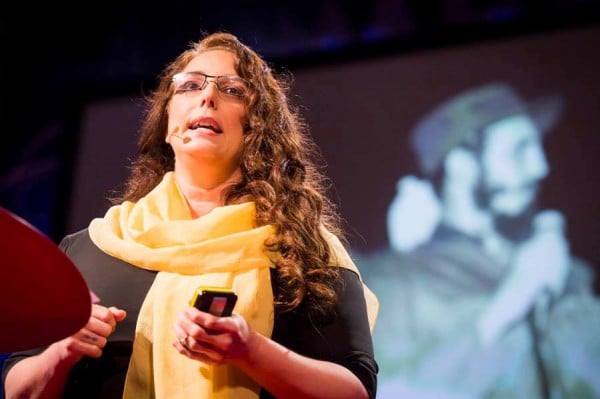Art & Exhibitions
Tania Bruguera Challenges Cuban Government With Reading on Totalitarianism During Havana Biennial

Photo James Duncan Davidson.

Brian Boucher

Activist artist Tania Bruguera is, if anything, stepping up her challenge to the Cuban government, just two days before the public opening of the Havana Biennial, which kicks off on May 22.
Starting today at her home, Bruguera is staging a 100-hour reading of German political theorist Hannah Arendt’s 1951 book The Origins of Totalitarianism, according to The Art Newspaper. Bruguera was arrested five months ago after she planned a public performance, Tatlin’s Whisper #6 (Havana Version), that was to guarantee participants one minute of free speech on any subject in Havana’s Revolution Square (see How Tania Bruguera’s Whisper Became the Performance Heard Round the World and Why Is the Havana Biennial Afraid of Tania Bruguera and Is She the Cuban Ai Wei Wei?).
Bruguera is calling the project the Hannah Arendt International Institute of Artivism. Arendt’s book studies Nazism and Stalinism and the rise of anti-semitism and racism that supported them. The book ranked number 93 in Le Monde’s 100 Books of the 20th Century.
The artist’s arrest followed the December announcement of a diplomatic thaw between the US and Cuba. The biennial will see the international art elite descend upon Havana for a shopping spree despite calls for a boycott, according to artnet News critic Christian Viveros-Fauné (see Will the Havana Biennial 2015 Be a Bonanza for Cuban Artists?).
Bruguera had lived in New York before traveling to Cuba to stage the project, she says, prodded by her own conscience:
Personally, ethically, I could not go on doing things outside my country—critiquing Israel, how immigrants are treated, capitalism—when [within Cuba] an atrocious form of capitalism is starting [to grow] and where social injustice follows that incipient capitalism. What kind of artist-activist am I if those things are happening and I do nothing?
Bruguera doesn’t spare the biennial organizers and asserts that they claim to be “promoting work that takes place outside the institutions,” but that when she discussed staging her performance outdoors, they balked. “It makes no sense that the biennial calls for actions in the streets,” she said, “with a non-art audience, and when I offer to do that, they say that it must be done inside the institution.”